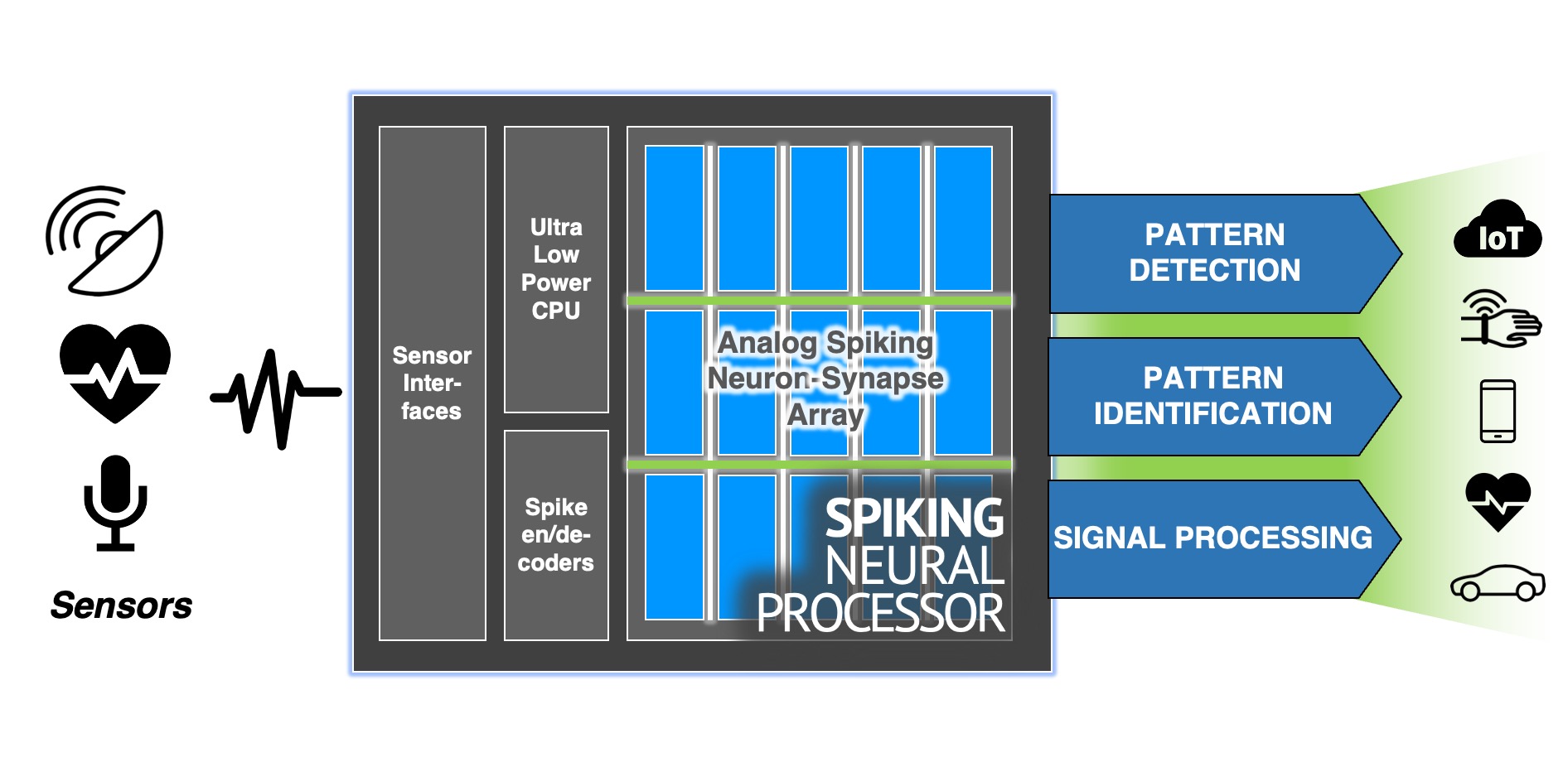The Spiking Neural Processor (SNP) family of ultra-low power processors enables high-performance pattern recognition at the sensor edge. The SNP enables real-time analysis of sensor data to detect and identify embedded patterns – eg. spoken words in audio data – with sub-milliwatt power dissipation and sub-millisecond latency.

A revolutionary analog-mixed signal neuromorphic architecture allows the SNP to operate in always-on scenarios, essential for most pervasive sensing tasks, within a stringently narrow power envelope. The SNP can be used as a dedicated sensor-handling engine, allowing for functions such as conditioning, filtering, and classification to be offloaded from the applications processor and realized in the always-on power domain.
With versatile silicon, a comprehensive SDK, model zoo, and readymade application concepts, Innatera provides end-to-end solutions for a wide range of applications and sensor types.

Process always-on audio with high-accuracy and ultra-low power dissipation

Realize low-latency, ultra-low power touch-free interaction using Radar sensors

Enable fast and efficient processing of radar and camera data for always-on presence sensing

Achieve efficient activity recognition in battery-powered wearables with IMUs

Implement powerful on-device ECG signal processing independent of the cloud